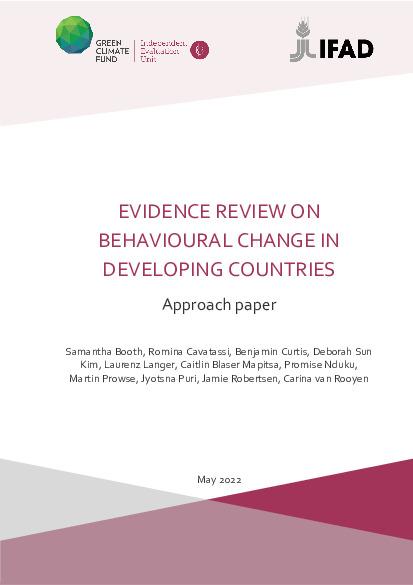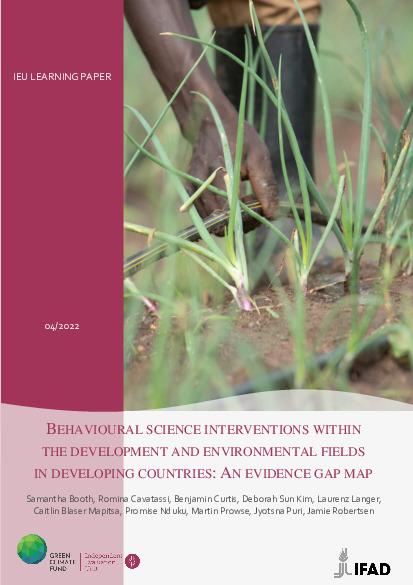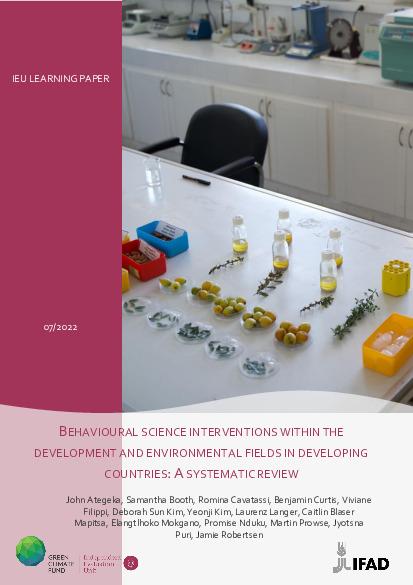Evidence review: Behavioural science
Evidence review: Behavioural science
While being the primary agent of mitigation and adaptation, human behaviours are the least studied aspect of climate change. With climate change intensifying globally each year, both mitigation and adaptation present heightened challenges for developing countries. Designing environmental and development interventions through a behavioural science lens strengthens the short- and long-term effectiveness of interventions. The evidence gap map presents a report and online resource depicting the landscape of studies on the effectiveness of behavioural science interventions. The systematic review reports effect sizes on five behavioural interventions – feedback, reminders, salience (communication), salience (experience design), and goal setting – and their effects on development and environmental/climate outcomes. It finds that feedback and reminders show positive effects across contexts.
Key documents

Approach paper: Evidence review on behavioral change in developing countries
June 2022
The approach paper clarifies the objectives of the review, the methods applied, and the criteria for inclusion and exclusion of studies. The evidence review and associated brief consolidates evidence on behavioural science interventions that encourage and support environmental and development outcomes in non-Annex I countries. It highlights the available evidence on a broad set of behavioural science interventions and their affects.

Evidence gap map: Behavioural science interventions within the development and environmental fields in developing countries
December 2022
The evidence gap map (EGM) presents a report and online resource depicting the landscape of studies on the effectiveness of behavioural science interventions. It finds the most commonly evaluated interventions are reminders and feedback. Most studies are from the WASH, financial, energy/extractives, and agricultural sector. Studies report adaptation outcomes more frequently than on mitigation, especially regarding knowledge, uptake and use.

Systematic review: Behavioural science interventions within the development and environmental fields in developing countries
December 2022
The systematic review reports effect sizes on five behavioural interventions – feedback, reminders, salience (communication), salience (experience design), and goal setting – and their effects on development and environmental/climate outcomes. It finds that feedback and reminders show positive effects across contexts